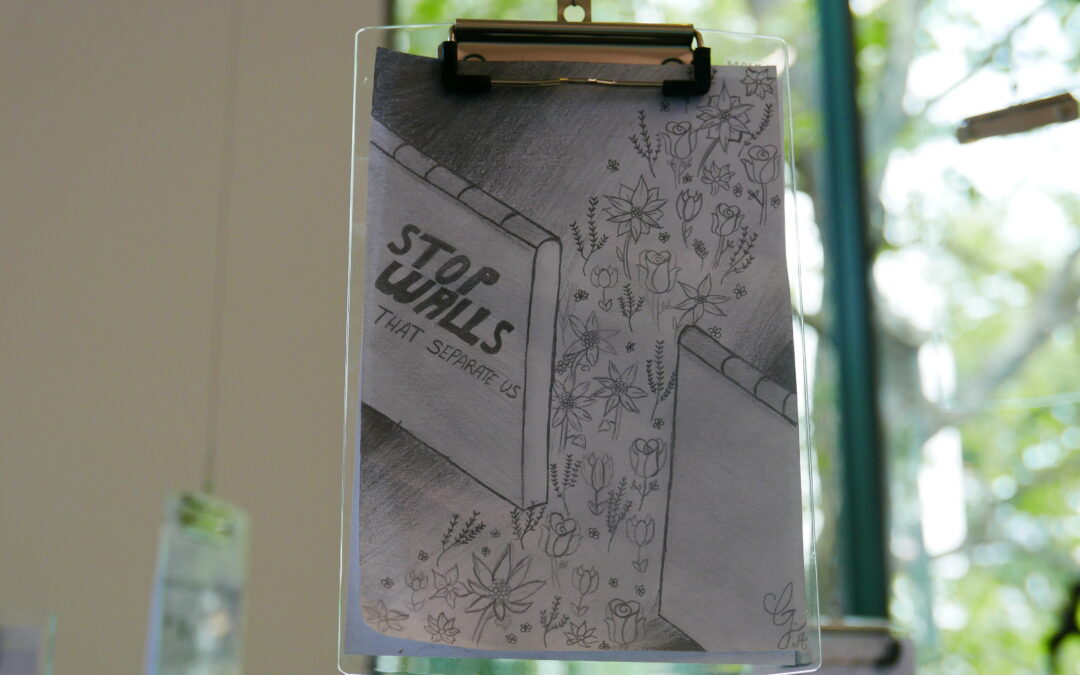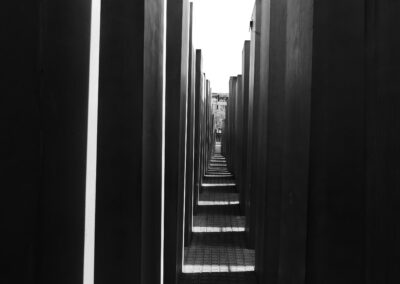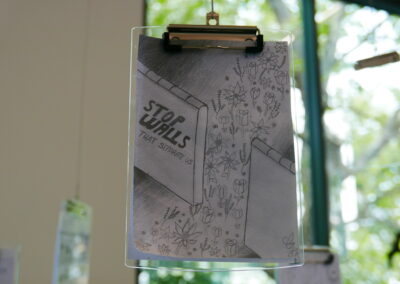by Anna Chen | Summer 2023 |
When I first saw the brochure for the Psychology Department study abroad trip to Leipzig, Germany, I was pulled in by the unique opportunity to study the effects of the Holocaust in the place it happened. I have been a visitor to many Holocaust-centered museums in my prior travels, wanting to know, as so many others – why? Why did this happen, and how could such a thing happen? And yet, as I walked through the grounds of the Buchenwald concentration camp near Weimar, it was not with a scholar’s practiced eye that I looked at the barbed wire fences, the stones on the ground, the burning blue sky.
As we followed in the footsteps of German history from WWII through the Cold War and German Communism on our tour through Berlin, I stopped seeing the battle wounds etched into the Berlin Wall as mere markers of the past. It was not enough to acknowledge the horrific truth of what had happened and move on; the old adage about history teaching us to not repeat the errors of the past is, in some cases, heart-cuttingly true. Approaching history with the moral high ground and distanced position of someone in the United States in the 21st century may be an easy choice, but not a wise one. There is no math that can measure sacredness or the sanctity of human life, and traveling to another country with its own scars and multilayered tapestry of stories allowed me to see more clearly just how fragile, but also how persistent, goodness can be.
We are all easily moved to prejudice, fear, selfishness, and survival, and we can name it independence, national pride, or saving face, depending on what culture we hail from. Being submerged, even briefly, in the brisk, ordered culture of Germany – one still healing from a war-torn economy and the shame of a genocide – taught me that virtue isn’t always as clear-cut as we may like to think. It is often only in hindsight that we are able to discern what was actually virtue and what was cruelty masquerading as virtue. In the end, we do not choose which side of history we are born into, the losers or the winners.
For me, strolling through the streets of Leipzig and peering into the hallways where the Stasi once trod was an exercise in sympathy, not judgment. So often before, I had waltzed into museums with the haughty confidence that we now know better, that this would never happen to us, and that surely I could not possibly allow something so terrible to happen. In my ignorance, I separated the world into villains and heroes and separated myself from both – after all, surely I could be capable of neither great evil nor great good. Being pulled from our typical environment can confront us with a less comfortable but more nuanced understanding: that history is not always defined by the “greats” but by the little things we do ourselves every day. The little kindness, the little question, the little pause we take instead of following along behind what everyone else seems to be doing.





